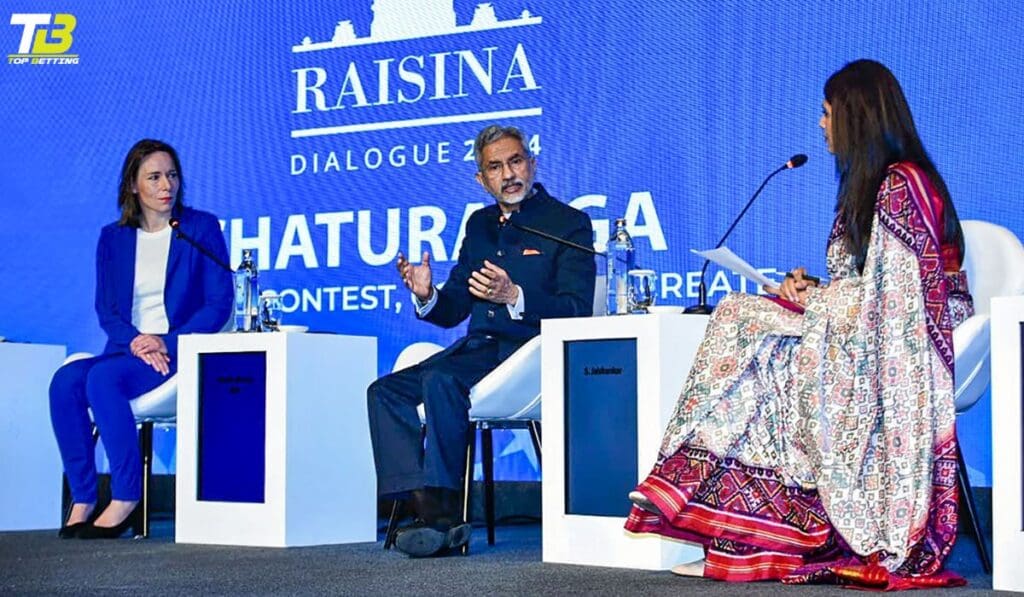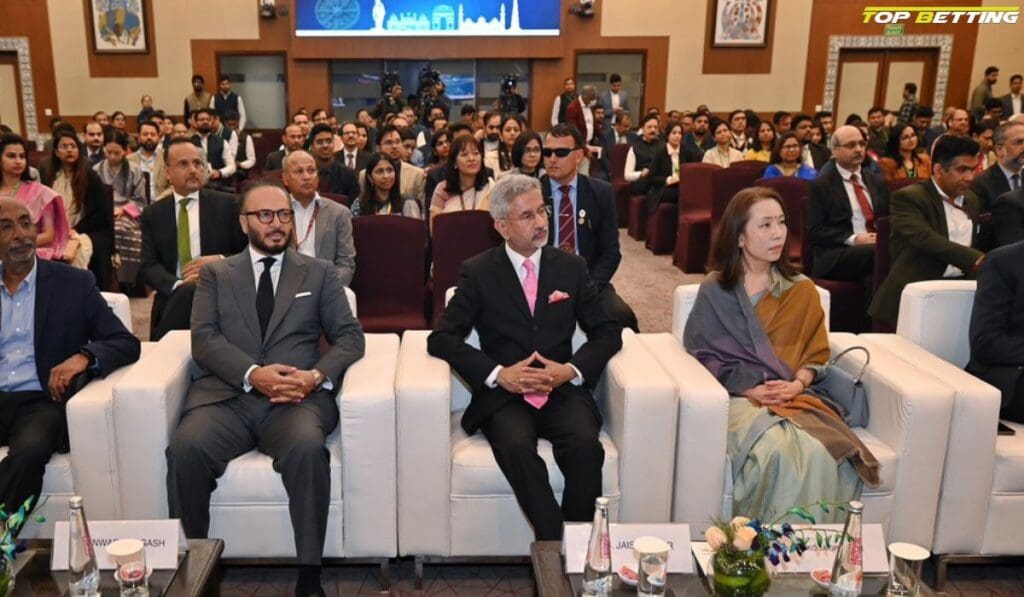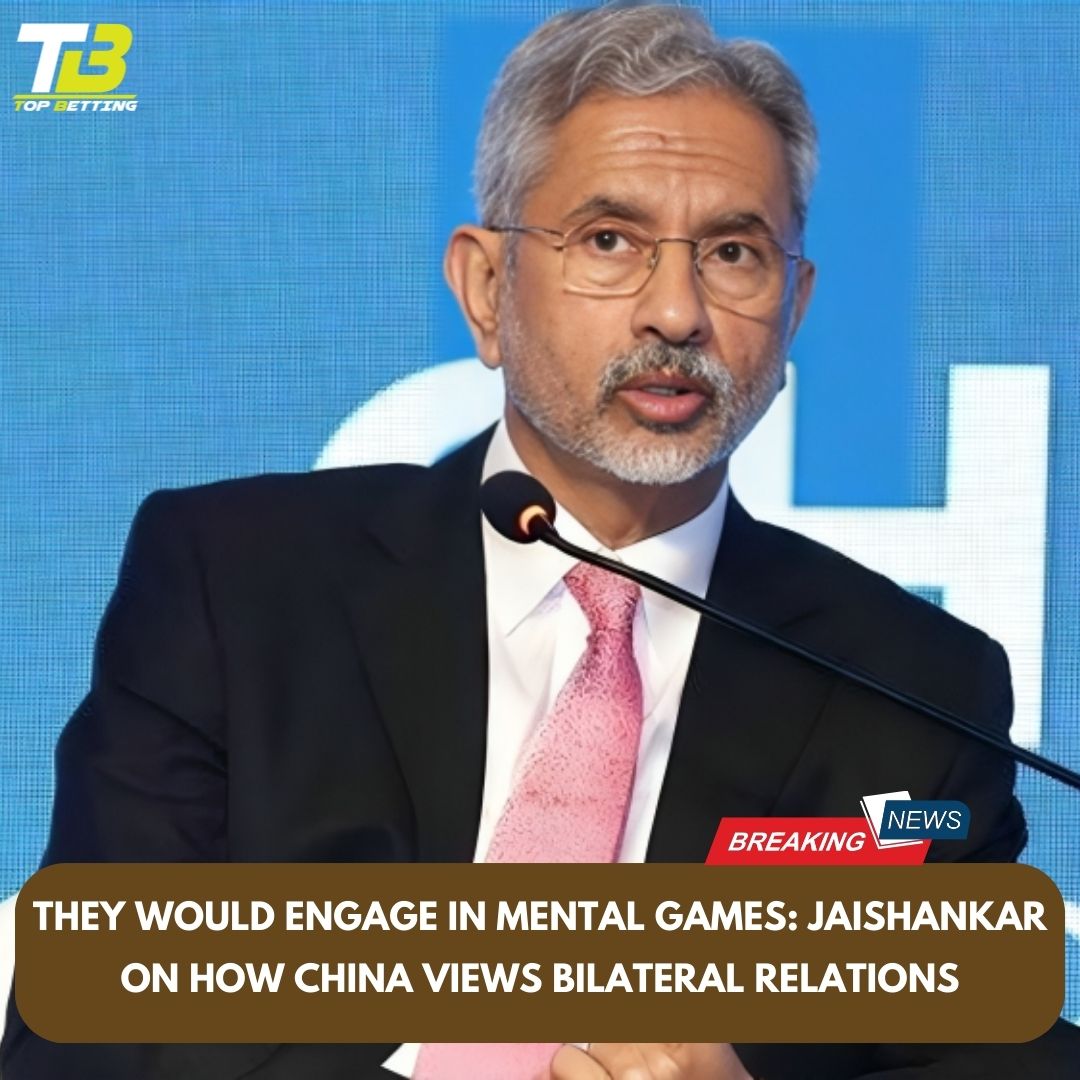
They would engage in mental games | Jaishankar Says
Introduction
In the complex realm of international relations, countries often engage in a variety of strategies and tactics to further their own interests. One such strategy is the use of mind games, where nations employ psychological tactics to gain an advantage over their counterparts. Recently, External Affairs Minister S Jaishankar shed light on China’s approach towards bilateral ties, cautioning against falling into the trap of these mind games. This article delves deeper into the concept of mind games in international relations, explores China’s approach, and examines the implications for India and the rest of the world.
The Nature of Mind Games
Mind games are a subtle and strategic way for nations to manipulate perceptions, create confusion, and gain an upper hand in negotiations or conflicts. They involve a range of tactics, including misdirection, deception, and psychological manipulation. The aim is to influence the decision-making process of the opposing party and shape the outcome in one’s favor.
China’s Mind Games: A Strategic Perspective
China, known for its long-standing tradition of statecraft, has mastered the art of mind games in international relations. The country employs various tactics to assert its dominance and advance its interests on the global stage. External Affairs Minister S Jaishankar, while speaking at the Raisina Dialogue 2024, shed light on China’s approach and offered insights into how India should navigate this complex landscape.
Economic Expansion vs. Evolving Growth
Jaishankar emphasized the contrasting trajectories of China and India in terms of economic expansion. China experienced rapid and intensive economic growth earlier, while India’s growth story is more recent and evolving. However, he pointed out that economic trajectories tend to flatten out over time, and projections suggest that both countries could have $50 trillion economies by 2075.
Departure from Mutual Understanding
The minister highlighted the importance of mutual understanding in maintaining equilibrium in bilateral relationships. He noted that there was a departure from the understanding established between India and China in the late 1980s regarding their border. This departure led to tensions and a subsequent pushback from India.
The Border Issue and Pushback
Jaishankar specifically addressed the border issue between India and China, emphasizing the departure from the understanding that had been in place for three decades. He acknowledged that there would be instances where each side would try to press home a particular advantage, leading to resistance from the other party.
Leveraging External Factors
To achieve favorable terms in bilateral relationships, Jaishankar stressed the importance of leveraging external factors. He cautioned against falling into the mind game of considering the relationship solely between the two countries without acknowledging the existence and influence of other nations. By harnessing other factors in the world, India can strive for better terms on an equilibrium.
Implications for India and the World
China’s approach to mind games in international relations has far-reaching implications for India and the rest of the world. It requires a nuanced understanding of the strategies employed and a proactive approach to safeguard national interests.
Maintaining Equilibrium
For India, maintaining equilibrium in its relationship with China is crucial. By understanding and countering China’s mind games, India can navigate the complex dynamics and protect its own interests. This requires a comprehensive strategy that includes diplomatic negotiations, economic partnerships with other nations, and military preparedness.
Multilateral Engagement
Engaging with multilateral forums and building strong alliances with other countries is key to countering China’s mind games. By actively participating in international organizations and leveraging the support of like-minded nations, India can strengthen its position and effectively counter China’s attempts to isolate it.
Economic Diversification
Reducing dependence on China and diversifying economic partnerships is another crucial step in mitigating the impact of China’s mind games. India should actively seek to expand trade and investment ties with other countries, fostering a more resilient and balanced economic ecosystem.

Technological Advancement and Innovation
Investing in technological advancement and innovation is essential for India to enhance its competitiveness on the global stage. By focusing on research and development, India can establish itself as a hub for cutting-edge technologies, reducing its reliance on China in critical sectors.
Strengthening Regional Cooperation
India should also strengthen regional cooperation to counter China’s mind games effectively. By forging closer ties with neighboring countries and fostering a spirit of collaboration, India can create a united front against any attempts by China to exploit divisions and assert dominance.

Conclusion
In the world of international relations, mind games are a potent tool for nations to gain an advantage over their counterparts. China’s approach towards bilateral ties involves the strategic deployment of these mind games, requiring countries like India to adopt a proactive and vigilant stance. By understanding the nature of these games, leveraging external factors, and strengthening alliances, India can effectively counter China’s tactics and safeguard its national interests. The path forward lies in maintaining equilibrium, engaging with multilateral forums, diversifying economic partnerships, fostering technological innovation, and strengthening regional cooperation. Only through a comprehensive approach can India navigate the complex dynamics of international relations and emerge stronger on the global stage.










